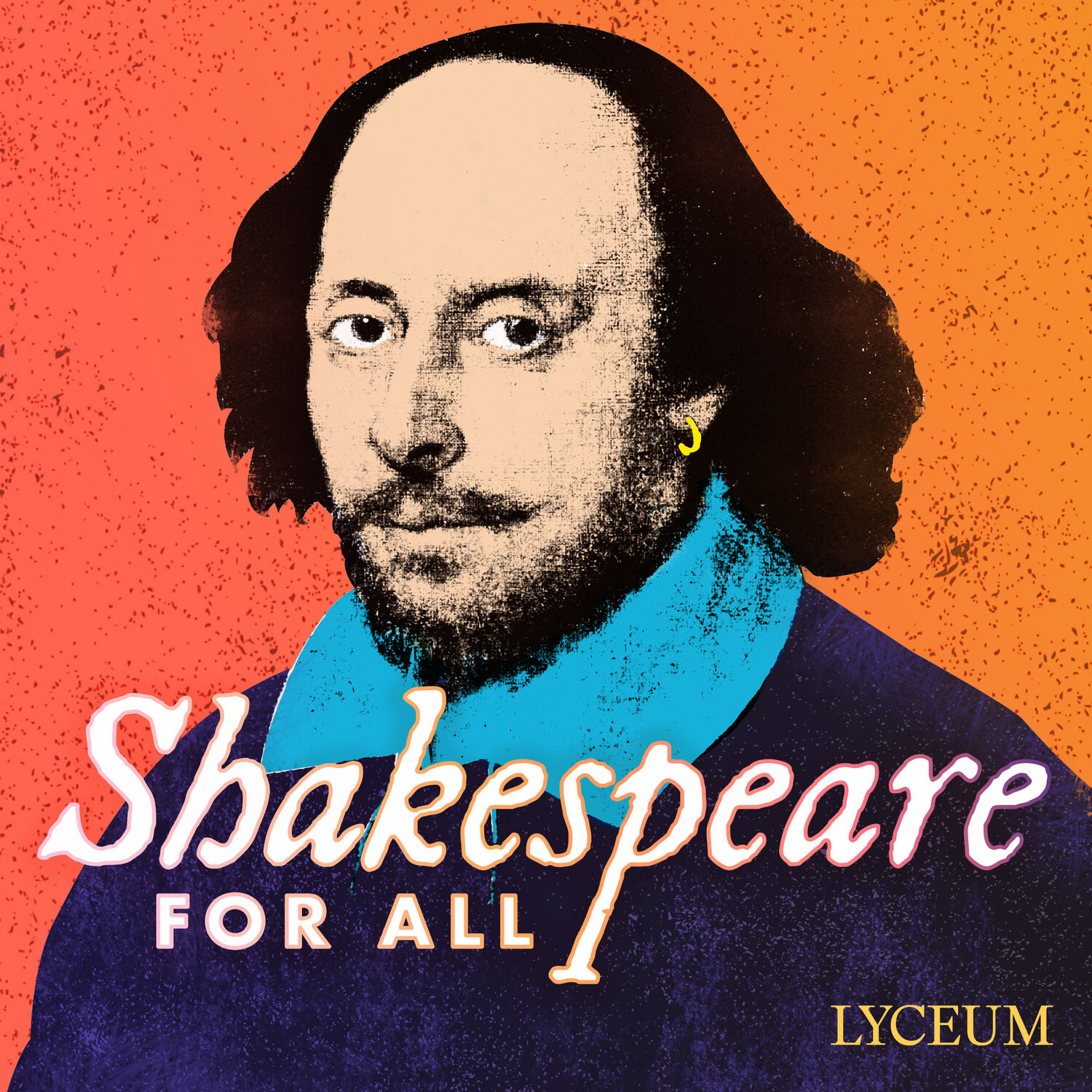Richard II
“RISE THUS NIMBLY BY A TRUE KING’S FALL”
What You'll Learn
The story of Richard II and the historical context behind the play
The play’s account of how political power is generated, seized, and transferred
How the play’s poetry reflects its plot and generates Richard’s distinctive tragic power
Course Outline
Episode 1: Summary of the play with historical context
Episode 2: Analysis of the play’s language, political themes, and character arcs
Episode 3: Actors’ recordings of key speeches from the play and discussion of those speeches
Works Consulted for this Course
Berger, Jr., Harry. “A Modern Perspective: Richard II.” Folger Shakespeare Library. <https://shakespeare.folger.edu/shakespeares-works/richard-ii/richard-ii-a-modern-perspective/>
Garber, Marjorie B. Shakespeare After All. New York: Pantheon Books, 2004
Maus, Katharine Eisaman. “Introduction,” Richard II, in Shakespeare, William. The Norton Shakespeare. Edited by Stephen Greenblatt, Walter Cohen, Suzanne Gossett, Jean E. Howard, Katharine Eisaman Maus and Gordon McMullan. 3rd ed. New York: W. W. Norton & Company, 2016.
Shakespeare, William. King Richard II. Edited by Andrew Gurr. The New Cambridge Shakespeare. Cambridge: Cambridge University Press, 1984.
Shakespeare, William. Richard II. Edited by Charles R. Forker. London: The Arden Shakespeare, 2002.
Smith, Emma. This Is Shakespeare. New York: Pantheon Books, 2020.
Richard II is at once a masterwork of poetry and a bloody account of political plotting. In the 1590s, Shakespeare wrote a series of eight plays based on English chronicle history. Richard II is the first play chronologically in that series, telling the story of a king whose fall helped set in motion the political contentions and civil wars for decades to come. In 1399, Richard II was deposed by his cousin Bolingbroke, who became King Henry IV. But in Shakespeare’s play, what Richard loses in political power, he gains in dramatic power. In this course, you’ll learn the story and historical context behind Richard II, explore the complex political dimensions depicted in this transition of power, and see how Shakespeare develops this unusual protagonist who wants to be a tragic character.
In Part 1, you’ll be guided through a detailed account of the story with commentary by Michael Dobson, Professor of Shakespeare Studies at the University of Birmingham and Director of the Shakespeare Institute in Stratford-upon-Avon. You’ll learn the historical background behind the play and start to explore the play’s central ambiguities concerning Richard’s political moves and Richard’s own character. This summary is told using the language of the play itself, placing key quotations in context to help you understand where these lines come from and what they mean.
Part 2 explores the play’s language and imagery and how it reflects the political plot. It discusses the political strategies and goals of Bolingbroke and Richard to ask what the play reveals about power and why Richard seems to gain in power as a literary, tragic figure precisely as he loses power as king – and why Richard seems to desire this tragic fate. It concludes by looking at how Richard’s story has been marshaled as political propaganda and at the political questions that Shakespeare leaves ambiguous: how should we regard Richard’s fate?
Part 3 features close-readings of several significant speeches and scenes. We hear from Richard’s opponents and from Richard himself as he narrates his way – dazzlingly – into his new tragic identity.
You can hear the third episode of this course for free below. For access to the full course and all of Season Two, subscribe today on Himalaya Learning. Use the promo code BARD for 30 days free.
Speeches and Performers
John of Gaunt, Act 2, “Methinks I am a prophet …” (Anton Lesser)
Richard II, Act 3, “For God’s sake, let us sit upon the ground …” (Keith Hamilton Cobb and Donald Sumpter)
Richard II and Bolingbroke, Act 4, “Give me the crown …” (Danann McAleer)
Course Instructor
Michael Dobson
Professor of Shakespeare Studies at the University of Birmingham and Director of the Shakespeare Institute in Stratford-upon-Avon
Michael Dobson is Director of the Shakespeare Institute in Stratford-upon-Avon and Professor of Shakespeare Studies, University of Birmingham. His previous employers include the Universities of London, Oxford, and Harvard, and the University of Illinois at Chicago. Professor Dobson is a General Editor of the Arden Performance Editions of Shakespeare series, an honorary governor of the Royal Shakespeare Company, a Trustee of the Shakespeare Birthplace Trust, Deputy Chair of Trustees of Flute Theatre, and co-director of the Shakespeare Centre, China. His research focuses not only on Shakespeare’s own works but also on how they have been creatively adapted by actors, scholars, directors, philosophers, composers, critics, and artists across time and space. His lecturing and research on Shakespeare have so far taken him to over 30 different countries; in 2020 he was awarded the International Shakespeare Prize of Romania, and he holds Romanian and Swedish honorary degrees, an honorary membership of the Ukrainian Shakespeare Centre, and an honorary professorship at Henan Normal University in China. He works as a frequent consultant to theatre directors and actors producing Shakespeare’s plays. Professor Dobson is the author and editor of numerous books and articles, including Shakespeare: A Playgoer's and Reader's Guide (co-edited with Stanley Wells, Oxford University Press, 2020), Shakespeare and Amateur Performance: A Cultural History (Cambridge University Press, 2011), Performing Shakespeare's Tragedies Today: the Actor's Perspective (editor, Cambridge University Press, 2006), England's Elizabeth: an afterlife in fame and fantasy (with Nicola J. Watson, Oxford University Press, 2002), The Oxford Companion to Shakespeare (co-editor with Stanley Wells, Oxford University Press, 2001), and The Making of the National Poet (Oxford University Press, 1992).



